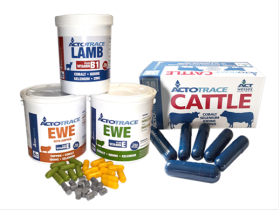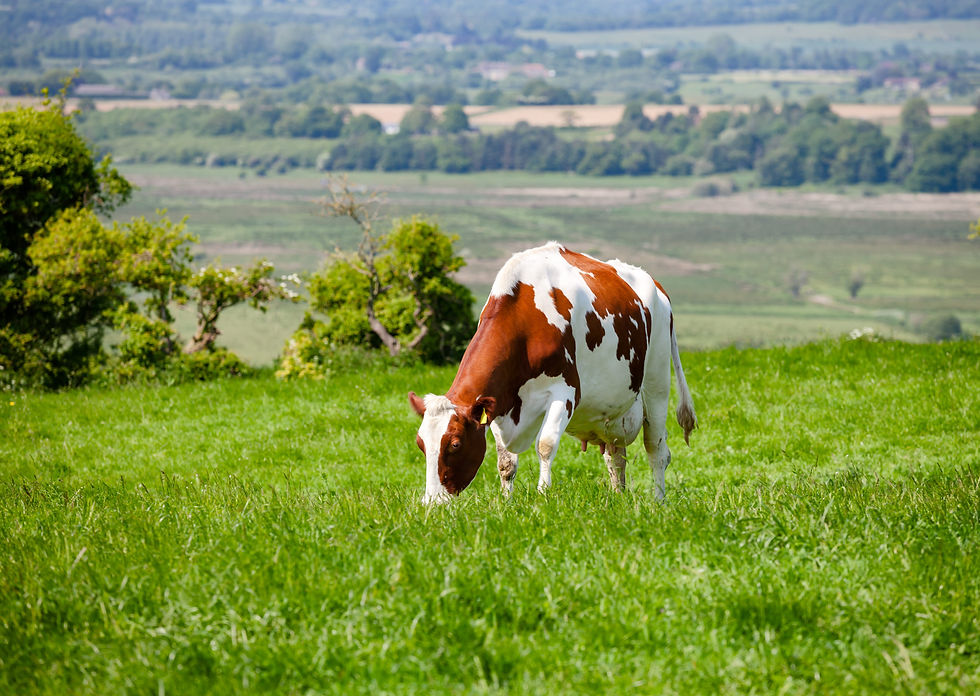Trace Elements Explained
- ACT Ltd.

- Nov 14, 2019
- 3 min read
Updated: Nov 15, 2019

Cobalt
Cobalt (Co) is a constituent of Vitamin B12 and it is a deficiency of this vitamin which can cause problems. Deficiency of vitamin B12 leads to a lack of appetite and poor looking sheep. It is most commonly seen in growing lambs where it can easily be confused with worms. To complicate matters, high worm burdens can actually impair absorption of vitamin B12 from the rumen. In adult sheep cobalt deficiency can be responsible for infertility or the birth of weak lambs. Response to therapy is the best way of diagnosing the disease. The ability of sheep to store vitamin B12 is not very good.
Selenium
Selenium and vitamin E work closely together and a deficiency of either tends to cause the same problems. The most characteristic form of deficiency of vitamin E/Selenium is ‘white muscle disease’. It usually affects lambs and can cause weakness, stiffness and rapid breathing and sometimes sudden death (due to causing weakness of the heart muscle). In older animals deficiency of vitamin E/selenium tends to cause general unthriftiness and can affect fertility.
Iodine
The UK naturally has high levels of iodine in its soil. The usual cause of iodine deficiency in this country is by exposure to chemicals which inhibit the uptake of iodine. These chemicals are found in brassicas such as kale and legume crops such as clover. Cereals and root crops are also a particularly poor source of iodine. When any of these feeds form a significant part of the ration, particularly in late pregnancy, it is likely that supplementation may be required. Low temperatures can increase the requirement by the body of iodine therefore exacerbating the effects of a deficiency. Sheep are quite susceptible to iodine deficiency compared to cattle. Signs include infertility in ewes, loss of libido in rams, poor wool growth and reduced weight gain in growing lambs. Iodine can also cause late abortion of lambs or the birth of weak poor doing lambs.
Copper
Deficiency Copper is usually present in adequate quantities on pasture but sometimes events in the rumen can mean that it is not absorbed particularly well. In the UK low copper levels in sheep are usually seen where there is a high Molybdenum (Mo) content in the soil. Signs of copper deficiency include loss of wool crimp (‘steely wool’) and lighter coloured wool (in coloured breeds). In young lambs where the ewes have been copper deprived the sign is swayback - uncoordinated lambs which tend to ‘sway’ their back legs. In older lambs deprived of copper the signs are slower weight gain, anaemia and fragile bones. Diagnosis of copper deficiency is usually on bloods or on post mortem examination of the liver or kidney. Treatment of copper deficiency is by supplementation with drenches, boluses or injections as with cobalt deficiency.
Summary:
Correct levels of minerals and vitamins are essential for optimum health and productivity but it can sometimes be tricky to work out which ones it is that you should be supplementing your sheep with. To make things more complicated, some minerals can be toxic if supplemented in too high doses and the consequences of this could be severe.
In general, minerals required by sheep can be divided into two main groups:
1) Micronutrients – these are minerals required in very low quantities, several milligrams per day or less. These are cobalt, copper, iodine, selenium, zinc, iron and manganese.
2) Macronutrients – these are minerals required by sheep in larger quantities, several grams per day. These are calcium, magnesium, phosphorus, potassium, chloride, sodium and sulphur. The four most important micronutrients to worry about are Cobalt, Copper, Selenium and Iodine. Zinc, Iron and Manganese are often talked about but deficiencies of these minerals are currently rare in the UK. Of the macronutrients, the ones which most commonly cause problems are Calcium and Magnesium.
For further information regarding our Actotrace Range of Boluses please call our Animal Health Specialists on 01425 474455 or buy online






Comments